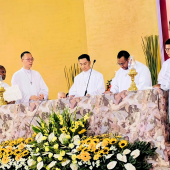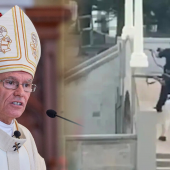Understanding election petitions in Papua New Guinea: A legal overview

In Papua New Guinea, election petitions serve as formal legal challenges to the conduct or results of national or local-level elections.
These petitions are governed by the Organic Law on National and Local-Level Government Elections, the Electoral Act, and established case law.
Only specific legal grounds qualify for filing a petition. These include bribery, undue influence, illegal practices, misconduct, non-compliance with electoral laws, candidate ineligibility, improper counting, and result declarations.
Petitions must be filed within 40 days of the declaration of results. This is a strict deadline; any late submissions are automatically rejected.
Who can file a petition?
-
A candidate in the election
-
A registered voter from the same electorate
-
The Electoral Commission (in special cases)
Petitions must be filed in the National Court of Papua New Guinea and are typically heard by a single judge acting as a court of disputed returns.
A valid petition must include:
-
The petitioner’s name and address
-
The respondent’s name (usually the winning candidate or the Electoral Commission)
-
A clear statement of the facts and legal grounds
-
The relief being sought may include annulment or the calling of a new election.
-
A verifying affidavit
Under Section 209, a K5,000 deposit is required as security for legal costs. Failure to provide this deposit renders the petition invalid.
After filing, the petition must be personally served on the respondents within 21 days, in accordance with court procedures.
The case proceeds with hearings where both parties present affidavits, cross-examine witnesses, and argue legal points. The court may:
-
Uphold the election result.
-
Void the result.
-
Declare another candidate duly elected.
-
Order a fresh election.
Notably, a national court decision on election petitions does not allow appeals. However, in exceptional cases involving constitutional issues, a judicial review by the Supreme Court may be possible.
Recent Case Precedents:
-
Samson Phannaphen v. Sir John Pundari (2024)—Petition dismissed for failing to meet cost deposit requirement.
-
Peter Yama v. Jimmy Maladina (2023)—Reinforced the need for strict procedural compliance.
Legal references include Section 135 of the PNG Constitution, Section 206 of the Organic Law, and the National Court (Election Petitions) Rules 2017, as amended by the 2022 Miscellaneous Amendments.
For candidates and citizens alike, understanding this legal framework is essential to ensuring electoral integrity and upholding democratic principles in Papua New Guinea.
Radio Veritas Asia (RVA), a media platform of the Catholic Church, aims to share Christ. RVA started in 1969 as a continental Catholic radio station to serve Asian countries in their respective local language, thus earning the tag “the Voice of Asian Christianity.” Responding to the emerging context, RVA embraced media platforms to connect with the global Asian audience via its 21 language websites and various social media platforms.














